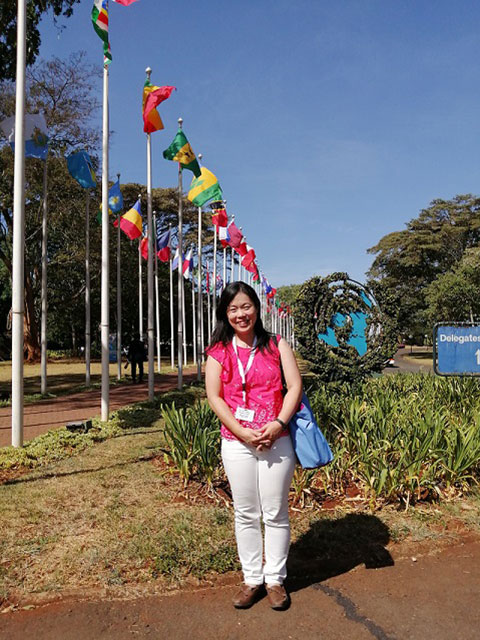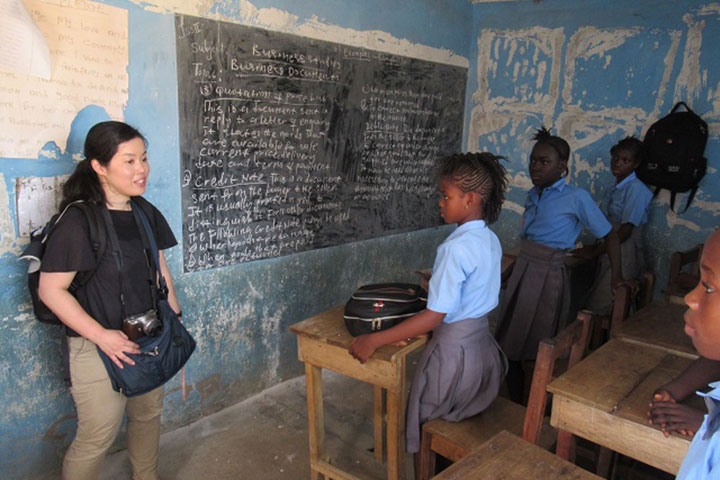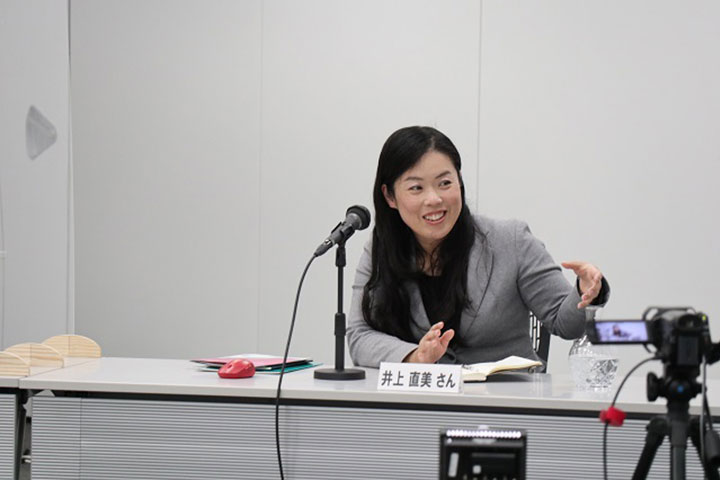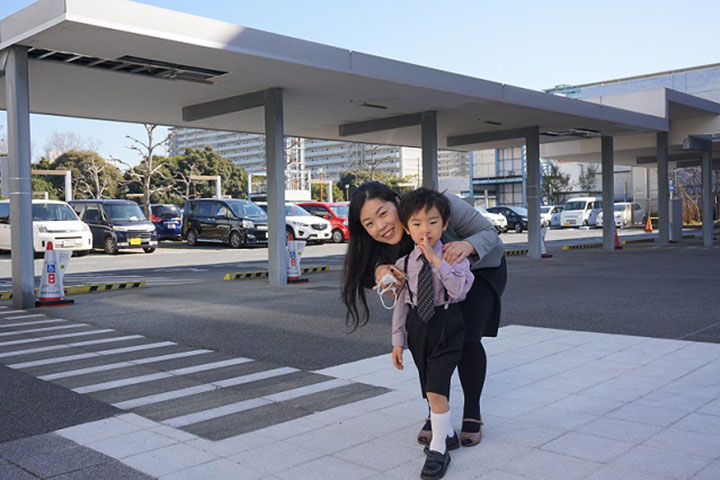
To be an expert in business and human rights
Name: Naomi INOUE (joined Tokyo University of Foreign Studies in 2020)
Nationality: Japan
Research Interest: Business and Human Rights
Why did you choose the Joint Doctoral Program for Sustainability Research (JDPSR) ?
Before enrolling in the JDPSR, I had hoped to become an expert on business and development issues with cross-disciplinary knowledge and with the ability to give fact-based advice from a neutral standpoint. While working as a consultant in the business and human rights field, I realized that my academic expertise was insufficient, as I faced some difficulties in making convincing arguments. Although I already had some experience and knowledge in the area, I thought it necessary to master related theories and gain a broader perspective. Therefore, I decided to enroll in the JDPSR with the hope of acquiring academic abilities and interdisciplinary knowledge while benefiting from a wide range of scholarly networks.
This joint program of three universities is one of the best doctoral programs in Japan in the field of sustainability studies, and by joining the course I hope to be inspired by professors and students from various academic fields, including by overseas students.

In a school at rural Sierra Leone
Tell us about your research topic, which is business and human rights.
Why is it important from the viewpoint of sustainability ?
In my understanding, research into business and human rights is essential for sustainability for three reasons. First, respect for human rights is the foundation of a sustainable society. Second, efforts to promote human rights in business will logically lead to listening carefully to the voices of vulnerable people, which is critical for realizing a sustainable world. Third, the current argument on business and human rights requires private companies to take responsible action while conducting business for the entire value chain. I agree with this argument and think this is essential for a sustainable society because the world is closely interconnected as a result of globalization.

At a seminar held by Nikkan Kogyo Shimbun
You have a little son. How easy will it be to study a doctoral course when you have a small child ?
It is manageable for me, as the JDPSR course structure is flexible. Although taking care of a child requires a lot of time and energy, I can use other times of the day for study. Notably, the JDPSR provides classes on weekends and evenings, and the professors and staff members are supportive and generous, so I can attend the course without any critical problems. Because of COVID-19, all classes were provided online last year. This also helped me. It even enabled me to have some opportunities to chat online with other students after lectures. If the only option were a face-to-face class at the university, I would have to return home immediately after the lecture and wouldn’t have had the time to chat with other students. There is no denying that the current pandemic is terrible and that it was sometimes challenging to take classes while the little one played behind the camera. Still, I enjoy the significant benefits of online communication technology.

At a piano contest with my son
What is your goal, or a dream, in the future after completing the doctoral degree ?
I want to be an expert in business and human rights, which are complex and cross-cutting issues. I strongly expect that the completion of my doctoral degree will give me confidence in dealing with these important issues and the ability to play an active role in the international arena.

